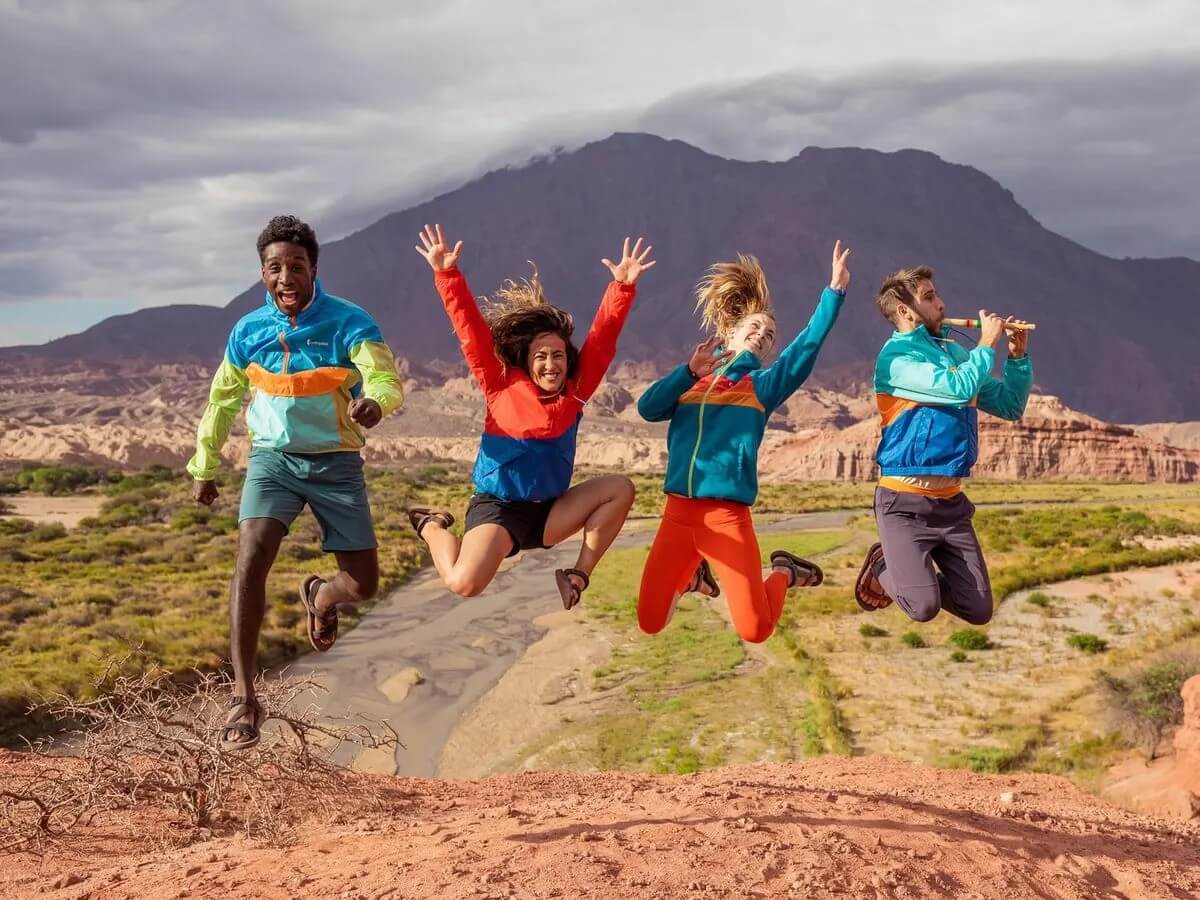
Table of Content:
Cotopaxi, Arc’teryx, and Stanley are leading the charge in the outdoor specialty market, showing remarkable year-over-year growth according to a report from Circana. These brands have seen double or even triple-digit increases in sales revenue, reflecting a robust market demand for their products. Arc’teryx, which heads the apparel category, has significantly contributed to the strong revenue growth of its parent company, Amer Sports. This technical apparel brand plans to expand its global footprint by opening 30 new stores this year, aiming for a total of over 500 stores worldwide.
Stanley, known for its Quencher water bottles, leads the equipment accessories category. The brand has garnered a strong following on social media, driving a collector culture with its frequent, highly anticipated product drops. This strategy has kept Stanley products in high demand, leading to rapid sellouts and sustained market presence.

Cotopaxi, leading the accessories category more broadly, continues to thrive by meeting the diverse needs of outdoor enthusiasts. This growth is part of a broader trend where outdoor brands are capitalizing on consumers' increased interest in health, wellness, and versatile products that enhance physical and mental well-being.
The outdoor industry saw a significant boom during the pandemic as people sought safe outdoor activities. Although some major players like REI have faced challenges and turned to layoffs due to sales declines, brands like Arc’teryx and Stanley are experiencing sustained growth by aligning their offerings with consumer lifestyle needs. This indicates a shift in consumer behavior towards more casual outdoor activities and a preference for high-quality, versatile products.
The success of these brands highlights the potential for growth in the outdoor market, driven by innovation, effective use of social media, and strong brand identity. For DTC brands, this serves as a valuable lesson in the importance of understanding and adapting to consumer trends to maintain relevance and achieve significant growth in a competitive market.
Why This Matters
The rise of Arc’teryx, Stanley, and Cotopaxi among the fastest-growing outdoor brands offers several critical insights for DTC brands. Firstly, it highlights the importance of aligning with consumer lifestyle trends, particularly the increasing interest in outdoor activities and wellness. Brands that cater to these evolving needs with high-quality, versatile products are thriving. Arc’teryx’s significant expansion and Stanley’s viral social media presence demonstrate the power of strong brand identity and innovative marketing strategies.
Moreover, this trend underscores the value of leveraging social media to create buzz and drive collector behavior, as seen with Stanley’s Quencher water bottles. This strategy not only boosts sales but also fosters a loyal customer base. For DTC brands, maintaining a dynamic online presence and engaging directly with consumers can lead to substantial growth.
Additionally, the success of these brands amidst a broader industry downturn emphasizes the need for agility and resilience. Brands that can swiftly adapt to market changes and consumer preferences are better positioned to succeed. This resilience is particularly vital in a competitive market where consumer behavior is rapidly evolving.
In essence, the growth of Arc’teryx, Stanley, and Cotopaxi offers a blueprint for DTC brands: understand and adapt to consumer trends, leverage social media effectively, and maintain a strong brand identity to drive growth and stay competitive in the market.
Key Takeaways for DTC Brands
Key takeaways for DTC brands from the rapid growth of Arc’teryx, Stanley, and Cotopaxi include:
1. Leverage Lifestyle Trends: Align your brand with emerging consumer lifestyle trends, such as the growing interest in outdoor activities and wellness. Offer products that meet these evolving needs with a focus on quality and versatility.
2. Social Media Engagement: Utilize social media to create excitement and drive collector behavior. Stanley’s success with its Quencher water bottles showcases the power of viral marketing and engaging directly with consumers.

3. Brand Identity and Innovation: Maintain a strong and consistent brand identity while being open to innovative marketing strategies. Arc’teryx’s technical apparel and Stanley’s trendy water bottles are prime examples of this approach.
4. Adaptability and Resilience: Be prepared to quickly adapt to market changes and consumer preferences. The ability to pivot and respond to new trends can set your brand apart in a competitive landscape.
5. Customer-Centric Approach: Focus on creating exceptional customer experiences both online and offline. Engaging directly with your audience and building a loyal customer base can lead to sustained growth and success.
By incorporating these strategies, DTC brands can thrive in a rapidly changing market and build a loyal customer following.
Conclusion
The rapid growth of Arc’teryx, Stanley, and Cotopaxi underscores the dynamic potential within the outdoor industry. These brands have adeptly capitalized on lifestyle trends, social media engagement, and strong brand identity to achieve impressive growth. For DTC brands, the key takeaways include leveraging lifestyle trends, utilizing social media for engagement, maintaining brand identity while embracing innovation, adapting quickly to market changes, and focusing on exceptional customer experiences. By adopting these strategies, DTC brands can navigate the competitive landscape and achieve sustained success.
In conclusion, the success stories of Arc’teryx, Stanley, and Cotopaxi highlight the importance of staying attuned to consumer trends, fostering direct engagement, and consistently delivering quality and innovation. DTC brands that embrace these principles will be well-positioned to thrive in an ever-evolving market, building strong, loyal customer bases and driving long-term growth.
Related content
Turn your social content into a revenue channel
Turn your TikToks and Reels into shoppable videos and boost conversions by 3.5x.














